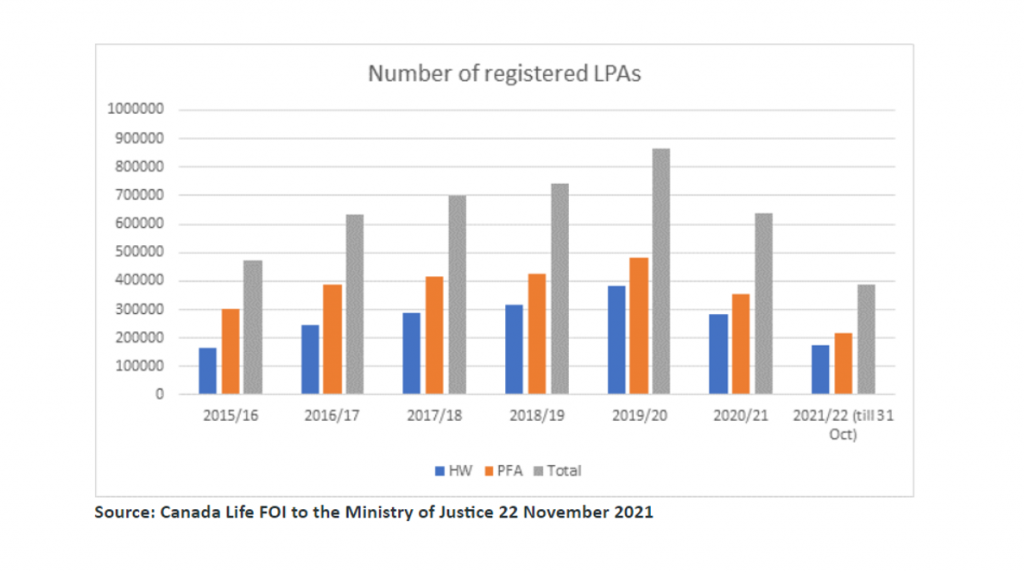The number of lasting power of attorney registrations has fallen by more than a quarter during the pandemic, according to data from the UK Ministry of Justice.
Following an Freedom of Information request by insurer Canada Life, the Ministry of Justice confirmed a 26.5% reduction in the number of lasting power of attorneys (LPAs) registered in the 2020/21 tax year compared to the previous year.
In total, 636,628 registrations were completed, split between 282,883 health and welfare and 353,745 property and finance LPAs.
This compares to 866,272 registrations in the previous tax year (2019/20) split between 382,130 health and welfare and 484,142 property and financial, which to date is the peak year for registrations.
The increase in registrations of LPAs follows on from the introduction of an online application process in 2015 and a follow-up awareness campaign, which led to an increase of 84% in the number of LPAs registered over a five-year period.
Andrew Tully, technical director at Canada Life, said: “It’s a little surprising to see the number of registrations fall during the pandemic, especially given the huge increase in the number of LPAs registered during the previous five years.
“This is partly due to the processing changes that needed to be made at the start of the pandemic and the resulting backlog caused.
“LPAs are incredibly powerful legal documents and very easy to put in place while you have the mental capacity to do so. At very little cost they can provide peace of mind, and in the event you find yourself mentally incapacitated, you know your affairs and needs would be looked after by the person you nominate.”
Tully noted that lasting power of attorneys put in place a valuable safety net and can provide significant reassurance at hugely difficult times.
They can be registered for health and welfare needs, when someone might need to make decisions on a person’s behalf around medical needs, daily routines or even decisions on moving into care.
Or for someone to make decisions on around property and financial needs if the person is unable to do so themself.
“We would urge anyone who put off doing this during the lockdowns to dust off the paperwork and finalise it,” Tully added.
